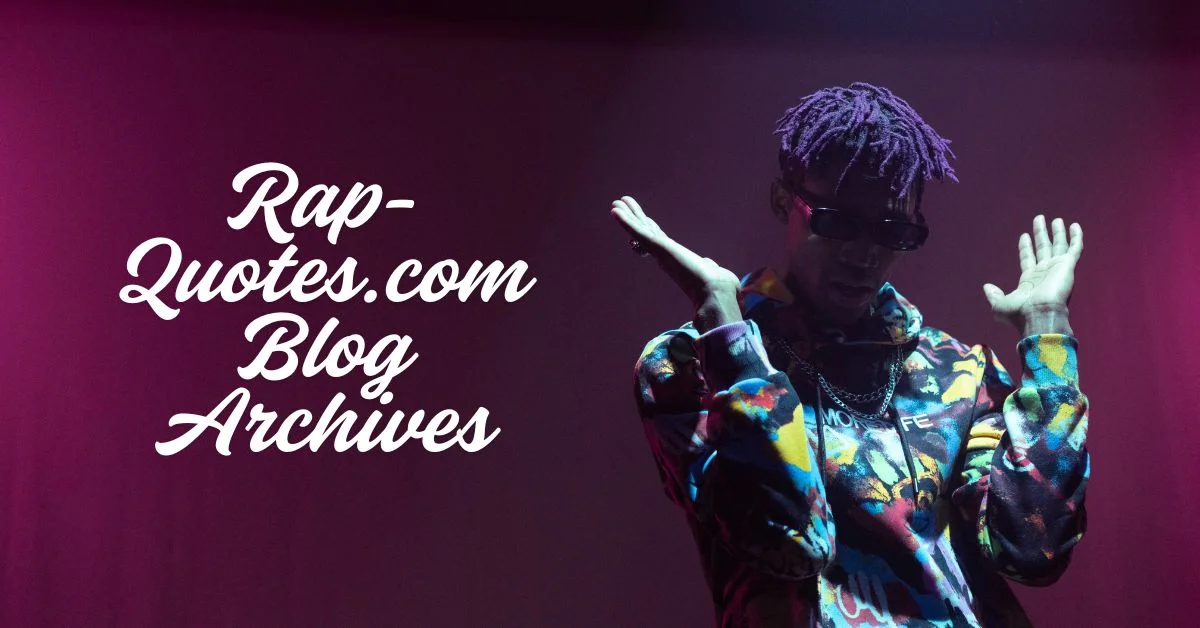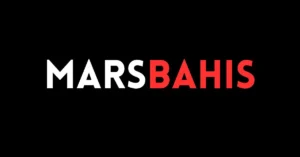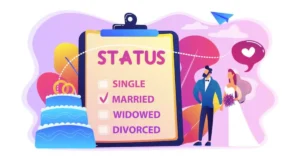In a digital world increasingly shaped by fleeting content, the rap-quotes.com blog archives stand as a rare and valuable time capsule. They offer not just a repository of rap lyrics but a thoughtfully curated chronicle of hip-hop culture, its voices, and the societal currents it rides. Whether you’re a hip-hop head, a scholar, or simply curious, the archives serve a dual purpose: documenting history while framing context. If you’re searching for a place where rap meets journalism, commentary, and cultural critique, this is it.
Why the rap-quotes.com Blog Archives Matter
From Grandmaster Flash to Kendrick Lamar, rap music has been both a mirror and a megaphone for society. The rap-quotes.com blog archives provide more than just lyrical snippets — they contextualize those words within the timelines, struggles, and triumphs that shaped them. By archiving posts that analyze, dissect, and reframe rap quotations, the blog serves as a reference point for evolving narratives in hip-hop.
What makes these archives different from other music blogs or lyric databases is the editorial voice. Each post is crafted with intent: to explain, to elevate, and sometimes to challenge. They’re not just noting what was said but questioning why it mattered then — and why it still does now.
READ MORE: Understanding Rapides Parish Inmates: A Complete Informational Guide
The Structure of the Archives: Organized Chaos or Curated Experience?
The archives are neatly categorized by artist, era, theme, and even emotional tone. You might find a post on Tupac’s revolutionary ethos next to one analyzing Drake’s existential introspection. This curated dissonance reflects the multifaceted nature of rap itself.
Every archived entry typically follows a structure:
- The Quote – A selected lyric that reflects a moment, idea, or emotion.
- The Breakdown – An analysis of the context behind the lyric: its cultural relevance, its subtext, and the artist’s intention.
- Historical Layering – Where appropriate, posts layer in past events, referencing civil rights, socio-economic conditions, or regional trends.
- Personal Lens – The writers often include anecdotal reflections, grounding the posts in lived experience.
This approach turns each blog entry into a form of oral history — digital, annotated, and deeply personal.
Not Just About Lyrics: The Socio-Political Commentary
While many come to rap-quotes.com blog archives expecting lyrical genius, they often stay for the incisive cultural commentary. Posts have tackled issues like mass incarceration, misogyny, black entrepreneurship, mental health, and more — all through the lens of rap lyrics.
One archival post titled “Capitalism and the Hustle: Jay-Z’s Blueprint” dives into how Jay-Z’s rhymes evolved from street narratives to corporate gameplans. Another, “Queen Latifah and Feminine Resistance,” frames her lyrics as part of a broader feminist dialogue, years before mainstream discussions caught up.
In this sense, the blog becomes a mirror to the societal impact of hip-hop — not just the beats or rhymes, but the realities they depict.
Underrated Voices: Beyond Billboard Artists
Mainstream rap gets attention, but rap-quotes.com doesn’t shy away from underground and lesser-known artists. The blog archives frequently highlight emcees who haven’t topped charts but have impacted culture in meaningful ways. Artists like Rapsody, Open Mike Eagle, and Jean Grae have all found space in these digital pages.
This inclusive spotlight gives readers a broader understanding of hip-hop’s ecosystem — one not limited to the hyper-visible but rich with regional and ideological diversity.
A Timeline Through Hip-Hop’s Evolution
Each post serves as a timestamp in the genre’s growth. The archives document rap’s shift from street corners to Silicon Valley boardrooms, from protest to party and back again. Browsing through entries from different years, one notices subtle changes in language, tone, and focus — reflecting how both rap and society have evolved.
For instance:
- 2008–2012: Posts are raw, often centered on lyrical dexterity and socio-political unrest during Obama’s first term.
- 2013–2017: More introspective posts emerge, discussing emotional depth, addiction, and mental health.
- 2018–2023: A surge in identity-based discourse — gender, race, queerness — reflecting broader cultural conversations.
Technology’s Role: The Digital DJ
The blog doesn’t exist in a vacuum. It links to audio samples, interviews, and rare footage, effectively remixing history for a digital age. A post isn’t just a reading experience; it’s often an interactive dive — complete with embedded Spotify links, Genius annotations, and even archival news clips.
This multimedia layering transforms the experience from passive reading to active engagement. You don’t just read about a lyric — you hear it, feel it, and sometimes see its impact on screen.
Educational Value: Not Just for Fans
More educators have turned to the rap-quotes.com blog archives for classroom use. Literature classes dissect the poetic mechanics of Nas and Kendrick Lamar. Sociology courses explore how lyrics reflect structural inequality. Even business schools use Jay-Z’s narratives to discuss branding and market positioning.
This pedagogical use positions the archives as more than a fan project — they are an academic resource, one that helps bridge generational and cultural gaps through language.
Community Interaction: Comments as Continuation
Every archived post includes a comment section where readers add their interpretations, stories, or corrections. This turns each blog entry into a collaborative piece — not just written about the culture, but shaped by the culture. Users frequently cite personal memories, regional insights, or additional artists that align with the topic.
This democratic authorship model honors the foundational essence of hip-hop: participation, voice, and authenticity.
Most Popular Posts and Why They Hit Home
Some entries in the archives have become particularly beloved, often cited or shared across social platforms:
- “America Eats Its Young: Kendrick, Ferguson, and Fury” — A haunting analysis of To Pimp a Butterfly and its resonance post-Michael Brown.
- “You Must Learn: KRS-One and the Reclamation of History” — A look at hip-hop as educational tool, especially for Black youth.
- “Love is a Battlefield: Lauryn Hill’s Confessions” — Reflecting on emotional labor and vulnerability in hip-hop.
These posts tap into shared cultural moments, using lyrics to voice what many feel but struggle to articulate.
The Editorial Philosophy: Lyrical Journalism
The editorial stance of rap-quotes.com borrows from traditional longform journalism. Posts are often several hundred to over a thousand words, meticulously edited, and deeply researched — though delivered with the cadence and rawness of the streets.
There’s no clickbait here. No top-10 lists or fluff. Every post aims to honor the lyric it features and give it the intellectual consideration it deserves.
READ MORE: Blessed Hands: A Deeper Look at the Gift That Transcends Professions and Cultures
Where It’s Headed: Future of the Archives
As rap continues to evolve — with new subgenres like drill, rage, and conscious trap — the archives are expanding. Recent additions have included entries on international rap scenes (U.K. grime, South African hip-hop) and the role of AI in music production.
There’s also a noticeable pivot to documenting more real-time responses — entries now sometimes appear just days after a major cultural moment, offering hot takes that still manage to feel enduring.
Conclusion: A Living Record of Rhymes and Resistance
The rap-quotes.com blog archives are more than a database. They are a digital monument to a genre that has refused to be boxed in — socially, politically, or musically. As rap continues to challenge norms and reshape narratives, these archives remain crucial: part library, part diary, and part revolution.
If you’ve never explored them, now is the time. In the rhythm of every line, you’ll hear more than just music — you’ll hear history being written.
FAQs
1. What is rap-quotes.com blog archives about?
The archives are a collection of deeply analytical posts that explore the meaning, context, and impact of rap lyrics over time.
2. Are the archives only about popular rappers?
No. They highlight mainstream, underground, and international artists, showcasing hip-hop’s diversity across geographies and cultures.
3. Can educators use content from the blog archives?
Yes. Many use it as a teaching tool in literature, sociology, music, and cultural studies due to its thoughtful and research-based content.
4. Is the blog updated regularly with new content?
Yes. The blog consistently updates with timely entries reflecting recent events, emerging trends, and new music.
5. How is rap-quotes.com different from Genius or other lyric sites?
Unlike Genius, which crowdsources annotations, rap-quotes.com offers curated, editorial analysis — combining journalism, cultural critique, and personal narrative.









